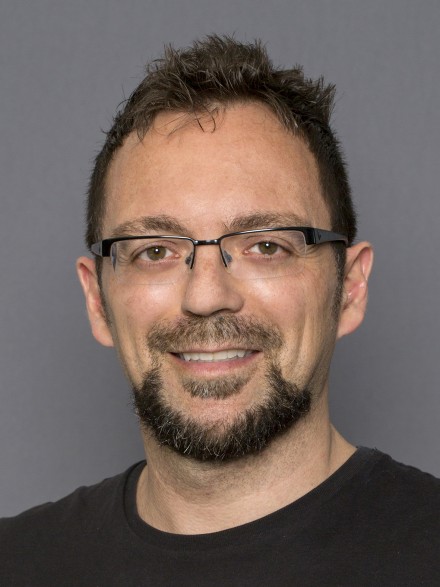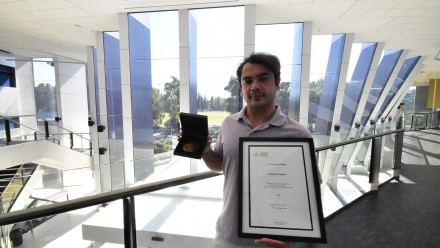Groups
The Centre for Computational Biomedical Sciences (CBS) is composed of the following research and technical groups:
Research Groups

The Eyras group works at the intersection between genomics technologies and biomedical research. The team develops computational tools to analyse and interpret data from new genomic platforms. By applying these technologies to samples from patients and biomedical models, Eyras’ research aims to uncover new insights into basic mechanisms of RNA processing and its role in human disease. Eyras’ group includes computer scientists and biologists developing new algorithms and machine learning tools to address standing problems in RNA biology.

The Andrews group is made up of data scientists, bioinformaticians and computational biologists, with deep experience from large, international genome sequencing projects. Lab members share a passion for constant change in methodologies and the rapid evolution of data types. In addition to academic work, Andrews’ team is motivated by translational applications. Recent examples include the development and clinical accreditation of genomic analysis toolsets for Canberra Clinical Genomics and the application of machine learning to detect subtle effects of genetic disease and predict patient outcomes.
The Wen group is devoted to exploring diverse modes of gene regulation through RNA, such as small RNAs, structural RNAs, RNA binding proteins, and RNA 3’ end processing. These regulatory modes exert profound control of development and physiology, and their dysfunction has enormous implications in human disease. Wen’s group employs a variety of computational approaches. They integrate advanced computational machine learning and statistical method development, high-throughput genome-wide data analysis, and molecular biology experiments to model gene regulatory interactions and predict and validate corresponding gene expression to discover new RNA networks of regulation that are relevant in disease.

The Lee Group focuses on the application of imaging science for biomedicine. Our goal is to develop new bioimaging informatics tools to study spatial temporal biophysical mechanisms underpinning disease progressions and in doing so improve new personalised therapeutic approaches. To do so, Lee’s team invents and develops automated system-level 4D bioimaging tools by interfacing innovative optics with machine learning approaches to study spatial temporal biology for living biological systems (cellular spheroids & organoids to living small animals & humans). Lee’s group includes biophysicists, biochemists, computer scientists, engineers and biologists.

The Burgio group focuses on the elucidation of the evolution and diversity of antiphage defence systems and the development of CRISPR gene editing technologies. By mining microbial genomes and metagenomes, we have established discovery pipelines enabling us to investigate novel CRISPR biology and the next generation of gene editing tools. These developments will enable precise gene modification for gene therapy or efficient detection of nucleic acid molecules for molecular diagnostics. From big data to mechanistic characterisation of antiphage defence molecules, Burgio’s research group includes computer biologists alongside microbiologists, molecular biologists, and protein chemists developing new pipelines and statistical methods to discover and investigate potentially novel biology.
Technical Bioinformatics Groups

The ANU Bioinformatics Consultancy (ABC). Led by Cameron Jack, the ABC is a JCSMR core facility providing cutting-edge bioinformatics and computing support to Australia's top biologists.Our goal is to enable biologists to understand and work with data that might otherwise seem overwhelming or incomprehensible.
We develop and run the latest processing and analysis pipelines, and operate dedicated bioinformatics computational hardware, and make these available for the local research community. We also adapt newly developed methods from other groups to be adapted for production work and to offer to experimental biologists.

Informatics Team. Led by Philip Wu, the Informatics team provides expertise in building large scale data management platforms and web based analytical tools for data-driven decision making, pipeline engineering, visualisation, integration and tracking of diverse biological datasets using the insights derived from the analytics to deliver new knowledge.
A combination of traditional database and bleeding edge big data solutions are leveraged to enable researchers and clinicians to take control of their data via secure online web-based applications supporting JCSMR, Australian Phenomics Facility and Canberra Clinical Genomics for the study of genome variation and phenotypic screens (biochemistry, flow cytometry) in animal models as well as human patients suffering from rare diseases. These platforms include Genetic Variation database, Mouse colony management system, Mouse strain and cryopreservation database, Human patient databases, sc-RNAseq visualization tools, flow cytometry database, and sample storage database.











